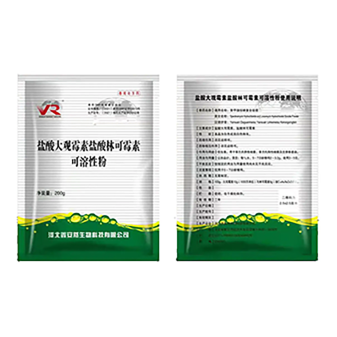- Afrikaans
- Albanian
- Amharic
- Arabic
- Armenian
- Azerbaijani
- Basque
- Belarusian
- Bengali
- Bosnian
- Bulgarian
- Catalan
- Cebuano
- Corsican
- Croatian
- Czech
- Danish
- Dutch
- English
- Esperanto
- Estonian
- Finnish
- French
- Frisian
- Galician
- Georgian
- German
- Greek
- Gujarati
- Haitian Creole
- hausa
- hawaiian
- Hebrew
- Hindi
- Miao
- Hungarian
- Icelandic
- igbo
- Indonesian
- irish
- Italian
- Japanese
- Javanese
- Kannada
- kazakh
- Khmer
- Rwandese
- Korean
- Kurdish
- Kyrgyz
- Lao
- Latin
- Latvian
- Lithuanian
- Luxembourgish
- Macedonian
- Malgashi
- Malay
- Malayalam
- Maltese
- Maori
- Marathi
- Mongolian
- Myanmar
- Nepali
- Norwegian
- Norwegian
- Occitan
- Pashto
- Persian
- Polish
- Portuguese
- Punjabi
- Romanian
- Russian
- Samoan
- Scottish Gaelic
- Serbian
- Sesotho
- Shona
- Sindhi
- Sinhala
- Slovak
- Slovenian
- Somali
- Spanish
- Sundanese
- Swahili
- Swedish
- Tagalog
- Tajik
- Tamil
- Tatar
- Telugu
- Thai
- Turkish
- Turkmen
- Ukrainian
- Urdu
- Uighur
- Uzbek
- Vietnamese
- Welsh
- Bantu
- Yiddish
- Yoruba
- Zulu
dec . 22, 2024 14:03 Back to list
oxytetracycline hydrochloride injectable
Oxytetracycline Hydrochloride Injectable An Overview
Oxytetracycline hydrochloride is a broad-spectrum antibiotic belonging to the tetracycline class of antibiotics. It is widely used for its effectiveness against a variety of bacterial infections in both human and veterinary medicine. This article delves into the properties, uses, mechanisms of action, and considerations associated with oxytetracycline hydrochloride injectable formulations.
Chemical Composition and Properties
Oxytetracycline is a semi-synthetic derivative of tetracycline. It is characterized by its unique chemical structure, which includes a naphthacene ring system. This structure allows the antibiotic to inhibit bacterial protein synthesis effectively. As hydrochloride, it is more water-soluble, which makes it suitable for injectable formulations. The solubility enhances its bioavailability, allowing for rapid action when administered.
Mechanism of Action
The primary mechanism through which oxytetracycline exerts its antimicrobial effects is by inhibiting protein synthesis in bacteria. It achieves this by binding to the 30S ribosomal subunit, blocking the attachment of aminoacyl-tRNA to the ribosomal acceptor (A) site. By doing so, it prevents the addition of new amino acids to the growing peptide chain, ultimately inhibiting bacterial growth and reproduction. This bacteriostatic action is effective against a broad spectrum of gram-positive and gram-negative bacteria, as well as certain protozoa.
Indications for Use
Oxytetracycline hydrochloride injectable formulations are indicated for the treatment of various infections, including respiratory tract infections, urinary tract infections, and skin infections. It is also used in the treatment of certain zoonotic diseases and is frequently administered in veterinary medicine for livestock to manage infections and promote growth. Additionally, oxytetracycline can be used in severe cases of acne and other skin conditions due to its anti-inflammatory properties.
oxytetracycline hydrochloride injectable

Administration and Dosage
The injectable form of oxytetracycline is typically administered intramuscularly or intravenously, depending on the severity of the infection and the patient’s overall condition. Dosage varies according to the specific infection, the organism involved, and the patient’s age and weight. It is essential for healthcare professionals to follow established protocols and guidelines to ensure effective treatment while minimizing potential side effects.
Side Effects and Precautions
While oxytetracycline is generally well-tolerated, it is not free from side effects. Common adverse effects may include gastrointestinal disturbances such as nausea, vomiting, diarrhea, and abdominal pain. In some cases, it can lead to photosensitivity, making the skin more susceptible to sunburn. Rarely, more serious side effects like liver toxicity and allergic reactions may occur.
It is crucial to avoid the use of oxytetracycline in patients who are pregnant or breastfeeding, as it can adversely affect fetal development and lead to discoloration of teeth in infants. Additionally, it should not be administered to young children due to the risk of temporary tooth discoloration and potential impact on bone growth.
Conclusion
Oxytetracycline hydrochloride injectable remains a vital tool in the medical arsenal against bacterial infections. Its broad-spectrum activity, along with its efficacy in both human and veterinary applications, underscores its importance in contemporary medical practice. However, proper usage and awareness of potential side effects are essential to ensure safe and effective treatment outcomes. As with any antibiotic, judicious use is recommended to combat the growing challenge of antibiotic resistance, ensuring that oxytetracycline remains a viable treatment option for years to come.
-
Guide to Oxytetracycline Injection
NewsMar.27,2025
-
Guide to Colistin Sulphate
NewsMar.27,2025
-
Gentamicin Sulfate: Uses, Price, And Key Information
NewsMar.27,2025
-
Enrofloxacin Injection: Uses, Price, And Supplier Information
NewsMar.27,2025
-
Dexamethasone Sodium Phosphate Injection: Uses, Price, And Key Information
NewsMar.27,2025
-
Albendazole Tablet: Uses, Dosage, Cost, And Key Information
NewsMar.27,2025













